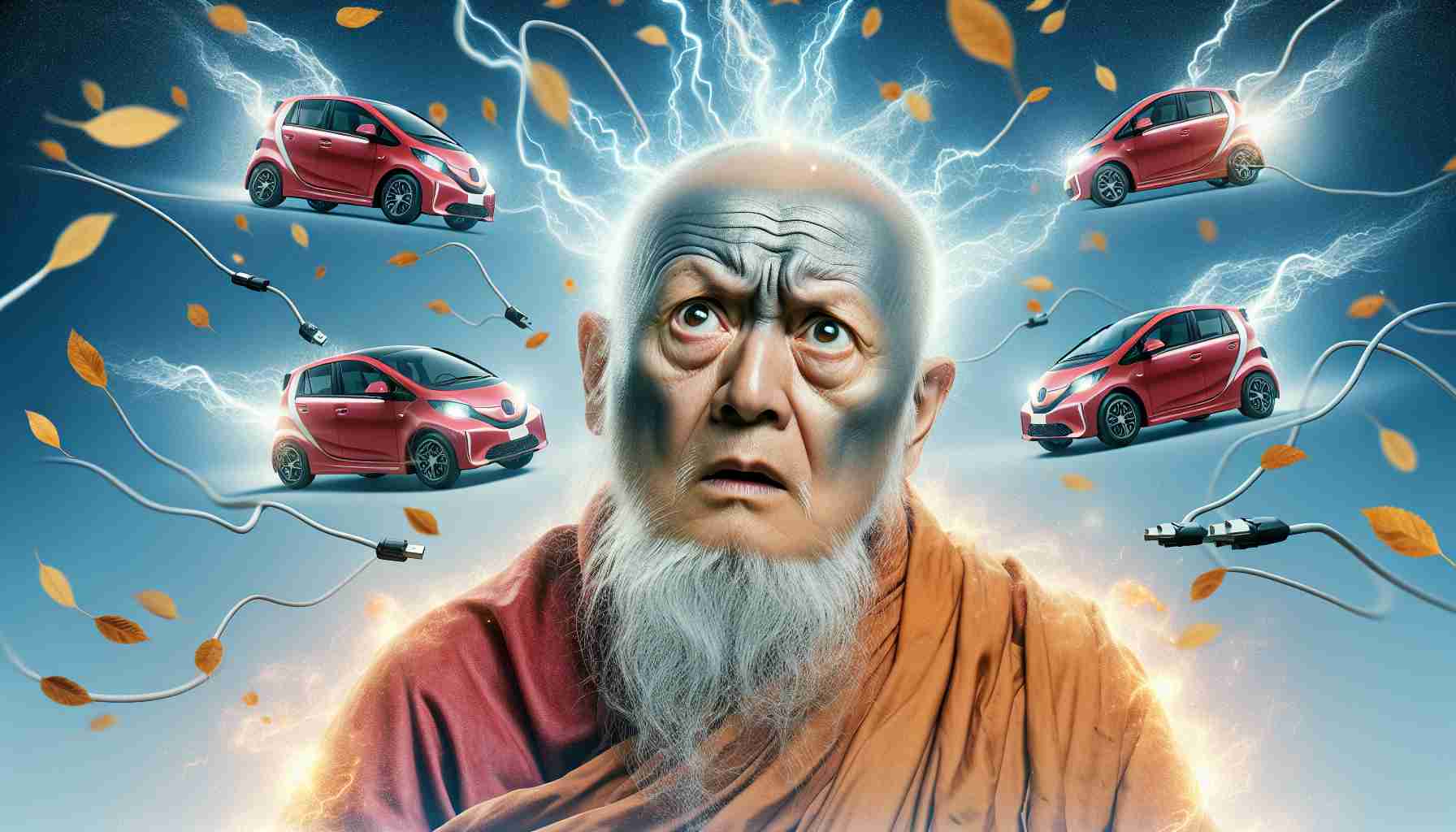Exploring the Complexity of Sustainable Transportation
Jaggi Vasudev, a renowned spiritual figure in India, has stirred a heated debate about electric vehicles (EVs) amid ongoing discussions about environmental sustainability. Although India is pushing for a transition to cleaner transportation options, he warns that simply switching from petrol and diesel to electric cars might not be the best course of action.
In a recent address at Chikkaballapur, Vasudev pointed out the limitations of EVs in a country heavily reliant on coal for electricity. He highlighted that while electric cars do not emit harmful gases directly, their environmental benefits are questionable if the source of the electricity is polluting. Coal currently accounts for nearly 50% of India’s electricity production, presenting a significant barrier to the eco-friendliness of EVs.
Vasudev emphasized that the production of electric vehicles, particularly their batteries, also carries environmental costs. He advocated for a broader consideration of sustainable energy sources, such as wind, solar, and hydroelectric power, which collectively contribute to approximately 41% of the country’s energy.
Beyond his environmental views, Vasudev is also known for his passion for automobiles, boasting an impressive collection that includes luxury vehicles and motorcycles like the Mercedes-AMG G-Class and Ducati Multistrada 1260. This fascination adds a personal dimension to his critical perspective on EVs, prompting a deeper conversation about what true sustainability means in India today.
Rethinking Electric Vehicles: The Path to True Sustainability in India
Exploring the Complexity of Sustainable Transportation
The transition to sustainable transportation in India is a topic of increasing importance, especially as the country aims to reduce its carbon footprint. Amid these discussions, Jaggi Vasudev, a prominent spiritual leader and environmental advocate, has sparked a debate about the effectiveness of electric vehicles (EVs) as a solution for sustainable transport.
Understanding India’s Energy Landscape
Vasudev’s concerns are rooted in the current energy infrastructure in India, where coal remains a dominant source of electricity generation, accounting for nearly 50% of the total. This reliance on coal poses a significant challenge to the sustainability of EVs, as he argues that an electric vehicle’s environmental credentials are compromised if the grid powering it is primarily fed by fossil fuels. For the habits of consumers to shift towards responsible energy consumption, India must undertake a substantial investment in renewable energy sources.
Current Energy Breakdown in India:
– Coal: Approximately 50%
– Renewables (wind, solar, hydro): About 41%
– Natural Gas and other sources: Roughly 9%
Implications of Battery Production
Another critical aspect highlighted by Vasudev is the environmental impact of producing EV batteries. The mining and processing of lithium, cobalt, and other materials necessary for these batteries contribute to environmental degradation and resource depletion. A deeper understanding of the lifecycle of EVs—including production, operation, and disposal—is essential for evaluating their true sustainability.
Pros and Cons of Electric Vehicles
Pros:
– Lower operational emissions compared to internal combustion engines.
– Potential for renewable energy integration if driven by solar, wind, or hydroelectric power.
Cons:
– High carbon footprint in manufacturing, especially for battery production.
– Dependence on non-renewable energy sources if the electricity used is not sustainably generated.
– Environmental concerns over raw material extraction for batteries.
Exploring Alternatives to EVs
Vasudev calls for a broader conversation surrounding sustainable transportation, urging for innovative solutions that extend beyond just transitioning to electric cars. This includes integrating public transport, cycling infrastructures, and encouraging carpooling, thereby reducing the number of vehicles on the roads. Countries that demonstrate success in sustainable transportation often employ a holistic approach, combining various methods rather than relying on a single solution like EVs.
The Future of Transportation in India
The debate spurred by Vasudev serves as a reminder that simply switching to electric vehicles is not a panacea for environmental issues. The real challenge lies in the development of a cleaner energy grid and sustainable production practices. Predictions for the future suggest that by actively investing in renewables and battery recycling technologies, India can make significant strides toward a truly sustainable transport system.
Conclusion
The conversation surrounding electric vehicles in India reflects larger trends in the global pursuit of sustainability. It is essential to scrutinize the implications of EV adoption comprehensively and to advocate for policies that encourage the development of clean energy. As these discussions evolve, understanding the complexities surrounding electric vehicles will be pivotal in achieving genuine sustainability in transportation.
For more insights on sustainable practices and energy solutions, visit the United Nations Sustainable Development Goals.













